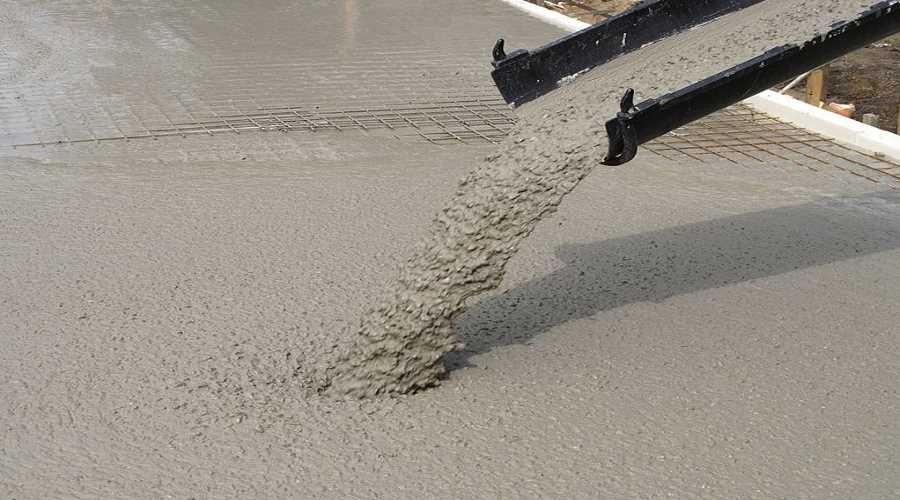The concrete modified by the Poles can be used. for the disposal of radioactive waste Journal of Science
Poles’ modified concrete can serve m.in. For the disposal of radioactive waste
Researchers at Lodz University of Technology have developed sulfur-organic copolymers that can be used to make more durable sulfur concrete, or asphalt that resists rutting. Modified concretes will enable disposal of radioactive waste and are resistant to microorganisms.
– These materials can be used on their own as low-cost polymeric materials, as row also can be introduced as modifiers e.g. for bitumenoin, asphaltow, rubberoin or concrete – said PAP the head of the project team of prof. Dariusz M. Bielinski, associate dean of the Faculty of Chemistry at the University of Warsaw’s Department of Science and Technology. science and innovation.
According to the scientist, the developed technology will make it possible to better utilize Polish sulfur deposits, as well as to manage waste sulfur, phosphogypsum and roThe reef may have been slightly shallower, and the water clarity was also loweroin technological, i.e. Ashes and slags from thermal power plants, rubber recycling products or biomass. – That is why we have come up with an initiative to manage sulfur in the production of new materialsow polymeric materials,” added the scientist.
Sulfur at a sufficiently high temperature (159 degrees C) undergoes spontaneous polymerization, but such polymeric structures are energetically unstable and recrystallize relatively quickly, deteriorating their mechanical properties. To fix the polymeric structure of sulfur can be used the addition of unsaturated compoundsoin organic waste, whichore stabilize the resulting copolymer.
As part of the project, scientists from the PL to synthesize copolymeroin organic sulfur, in addition to the most commonly used dicyclopentadiene (DCPD), they used renewable substances of natural origin: turpentine, furfural, furfuryl alcohol, and obtained from recycled materials: pyrolysis waste oiloin rubber and polyolefins. For concreteoin polymeric materials involving copolymersoin sulfur as binders, were introduced roAlso industrial waste, i.e. phosphogypsum, ash and slag from thermal power plants.
The thermal and mechanical properties of the obtained copolymers were investigatedoin sulfur-organic waste and used to produce sulfur concreteow and rubber mixtures, bitumenow and asphaltow.
– The process involves synthesizing sulfur copolymers, materials thatore allow sulfur to behave stably. It does not effloresce on the surface of the material and has permanent mechanical properties. Sulfur-organic copolymers used as a binder in sulfur concrete make it possible to obtain concreteoin special, microorganism-resistantoin e.g. fungusow, mchoin, lichenow – he explained.
They also increase the chemical resistance of this type of materialow, making it possible to use them e.g. As elements of wharves in ports. – Copolymer additionoin sulfuric for materialoin concrete will result in an increase in their resistance to seawater,” noted Prof. Bielinski.
Organic sulfur copolymers introduced as modifiers for roticow, bituminous masses or asphaltow are to improve their thermal stability and resistance to permanent deformation.
– They have the advantage over sulfur modification of asphalt that the modifier does not effloresce on the surface, does not emit an unpleasant odor during the process ofoin its overlay and facilitates the bonding of. Moreover, the use of copolymeroin sulfur for modification of asphalt, due to the fact, confirmed by the results of research, that the polymer crosslinkingoin and bitumenoin contained in asphaltenes will cause the modified in this wayob asphalts will be more resistant to rutting,” stressed the scientist.
Research conducted at the Technical University of LoThe studies carried out by the National Research Council have also shown that sulfur concrete offers opportunities for the disposal of hazardous wasteoin radioactive. – This has been tested in a laboratory at the Institute of Radiation Technology. Radioactive waste, whichore will come from nuclear power plants, will be able to be safely stored in sulfur concrete shelters, as radionuclides will not be released from such protection,” the scientist stressed.
Łodz researchers have completed the first stage of the project, whichory consisted in developing a copolymerow and productow involving them. Someore solutions have been applied for patents. They are currently seeking funding from the NCBiR and the National Fund for Environmental Protection and Water Management to develop a technology for industrial production of sulfur concreteow.
– We have it developed on a laboratory scale and will seek to start production of these materialsoIn the SPS (Super Proton Synchrotron) accelerator, industrial waste, i.e. sulfur, will also be modified. Bielinski. According to him, after receiving financial support, industrial-scale production could start within dwoch years.


